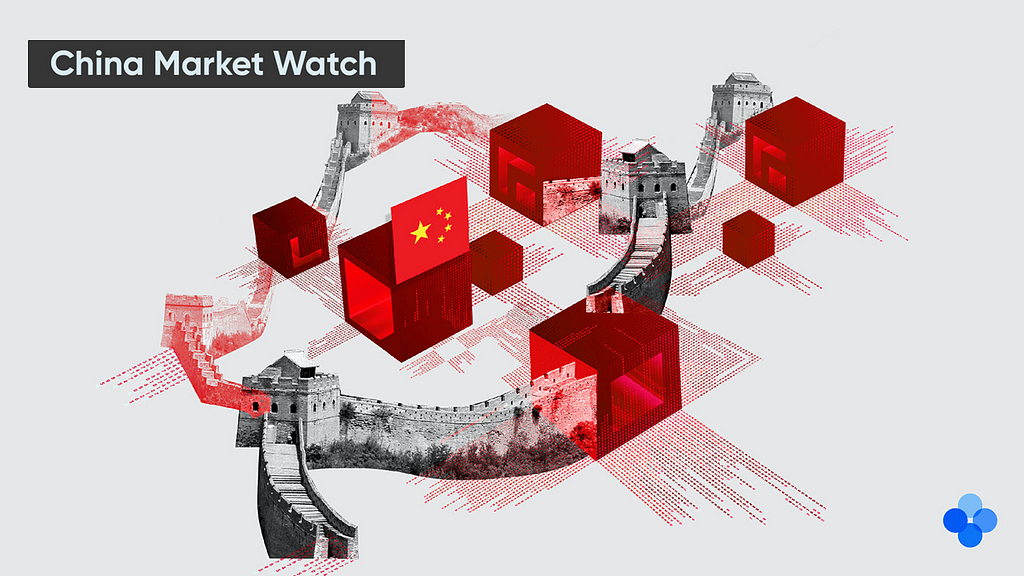Latest news about Bitcoin and all cryptocurrencies. Your daily crypto news habit.
A weekly overview of blockchain and cryptocurrency news from China and Hong Kong
Digital Currency Electronic Payment, the official digital currency of China, has taken center stage among the crypto community in China and Hong Kong. Following the first DCEP red packet distribution in Shenzhen, the Suzhou government will release DCEP red packets worth 20 million RMB ahead of the Double 12 Shopping Festival this weekend.
Meanwhile, the Hong Kong Monetary Authority partnered with the People’s Bank of China to test DCEP in cross-border payments. At the same time, the Bank of China — not to be confused with the PBoC — completed its first blockchain-based tax verification in Tibet.
Here is everything you might have missed regarding these stories, and more, in this week’s edition of OKEx Insights’ China Market Watch.
DCEP red packets may be spent online in Suzhou
To celebrate the Double 12 Shopping Festival on Dec. 12, the Suzhou government announced that DCEP red packets worth 20 million RMB will be given to its citizens. The announcement stated that 100,000 DCEP red packets, worth 200 RMB each, will be distributed via a lottery. The result of the lottery will be announced on Dec. 11.
The recipients of the red packets may spend their DCEP with merchant partners in Suzhou and online retail stores, such as JD.com, from Dec. 11 to Dec. 27.
Key takeaways
- The DCEP red packets in Suzhou can be spent in online retail stores, such as JD.com — something that was not possible in the previous DCEP red packet giveaway in Shenzhen.
- JD.com has been active in exploring the integration of DCEP into its business. The e-commerce giant has partnered with the PBoC to co-develop a mobile application and blockchain platform for DCEP.
Hong Kong Monetary Authority partners with PBoC to trial DCEP
Eddie Yue, the chief executive of the Hong Kong Monetary Authority, said in a statement that it is partnering with the PBoC in order to test DCEP for cross-border payments.
According to Yue, DCEP offers an additional option for residents in Hong Kong and China to make cross-border transactions. Both institutions are preparing for a technical pilot test of DCEP, though there is not yet a timetable for the central bank digital currency’s launch.
Key takeaways
- Christopher Hui, Hong Kong’s treasury secretary, hinted at the DCEP collaboration between the HKMA and the PBoC in October. He said in a Legislative Council Q&A session on Oct. 21 that he believes DCEP can promote mutual connectivity between China and Hong Kong in cross-border payments.
- The DCEP trial in cross-border payments reiterated the strategic focus of the Hong Kong Monetary Authority in central bank digital currencies. In early 2020, the HKMA partnered with the Bank of Thailand in “Project Inthanon-Lionrock,” a research initiative to enhance cross-border payment efficiency using distributed ledger technology.
Bank of China completes first blockchain tax verification
According to Chinese media Xinhua, the Tibet branch of the Bank of China recently completed the first blockchain-based tax verification in cross-border transactions.
This year, the State Administration of Foreign Exchange has piloted a blockchain-based financial platform that onboarded its Tibet branch. The blockchain trial has onboarded seven banks from Tibet, to date.
The Bank of China has successfully verified the associated tax expenses in trademark registration for a catering company in Tibet.
Visit https://www.okex.com/ for the full report.
OKEx Insights presents market analyses, in-depth features, original research & curated news from crypto professionals.
Not an OKEx trader? Sign up, start trading and earn 10USDT reward today!
DCEP may be spent online in Suzhou, Bank of China verifies tax via blockchain was originally published in OKEx Blog on Medium, where people are continuing the conversation by highlighting and responding to this story.
Disclaimer
The views and opinions expressed in this article are solely those of the authors and do not reflect the views of Bitcoin Insider. Every investment and trading move involves risk - this is especially true for cryptocurrencies given their volatility. We strongly advise our readers to conduct their own research when making a decision.
